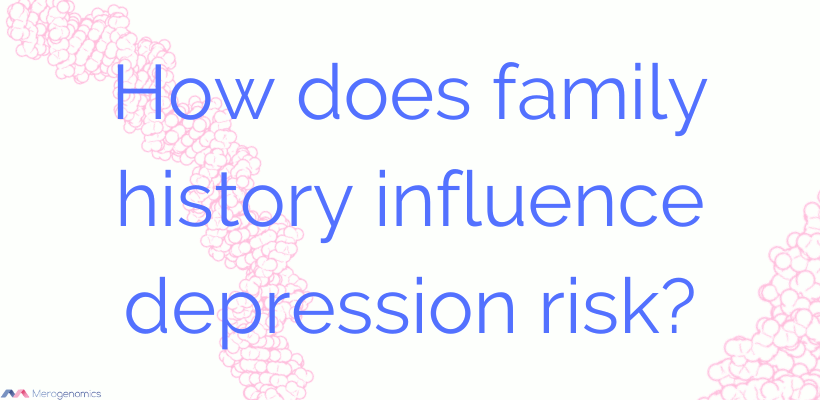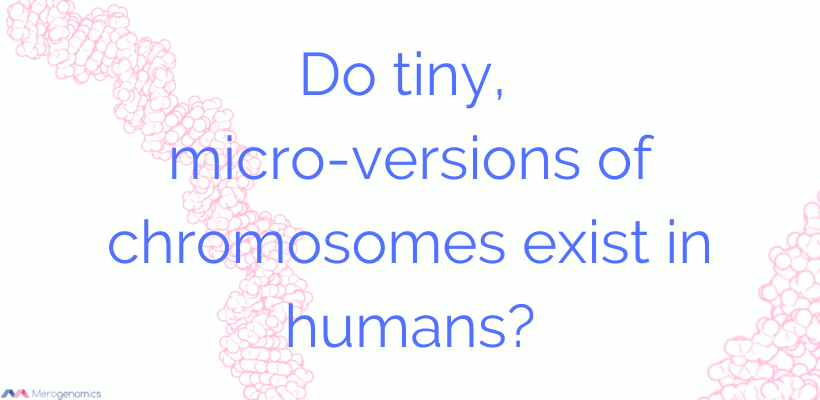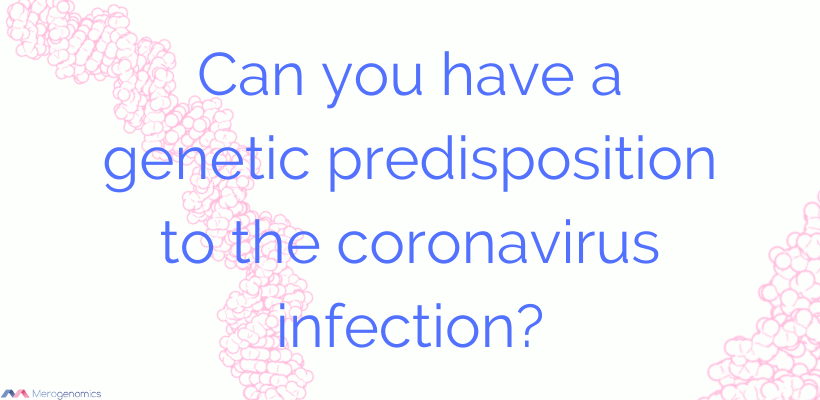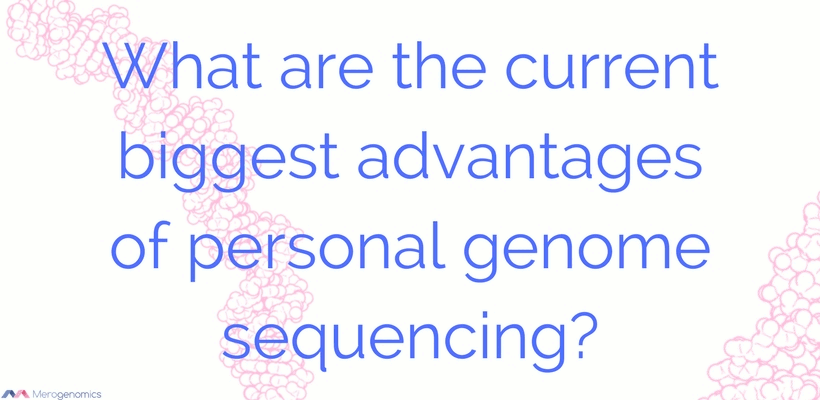Diseases
-

Foods helping Helicobacter pylori management
30/08/2024Posted by:Dr.M.Raszek
Helicobacter pylori is a widely prevalent gastric pathogen that can lead to ulcers and cancers. Research suggests that certain dietary choices can support conventional antibiotic treatments by reducing H. pylori colonization and enhancing immune response. We review the animal products, vegetables, fruits, herbs, and probiotics that could be used against H. pylori.
-

Understanding hereditary traits in mental health challenges
27/06/2024Posted by:C.Petruzzo
Explore how hereditary traits in mental health challenges impact diagnosis and treatment, enhancing understanding and care options.
-

Most common mRNA vaccines serious adverse events
30/05/2024Posted by:Dr.M.Raszek
A comprehensive analysis 2022 Pfizer report detailing nearly 5 million adverse events, collected over the first 1.5 years of mass vaccination, including serious side effects impacting vaccinated individuals. The report serves as a crucial resource for medical professionals, highlighting the most commonly affected body systems such as general disorders, nervous system disorders, infections, and cardiac issues.
-

Exploring the link between depression and genetic predisposition
25/04/2024Posted by:V.Foster
Explore the link between depression and genetic predisposition to understand how genetics influence mental health risks.
-

IgG4 update from Dr. Bossche
25/11/2023Posted by:Dr.M.Raszek
Dr. Geert vanden Bossche is currently the only expert we know of who dares to predict the ending to the current pandemic (warning, it ain’t pretty). How do the IgG4 antibodies seen in mRNA vaccinated fit into all of this?
-

The mysterious role of IgG4 antibodies in autoimmune conditions
25/10/2023Posted by:A.Whyte
What are IgG4 antibodies? Here is the basic intro of what we have known about these mysterious antibodies in immune conditions.
-

Can fasting remove our “bad” antibodies?
29/06/2023Posted by:Dr.M.Raszek
We explore the available science to see if fasting can be used to remove unwanted antibodies from our body, such as the IgG4 antibodies observed to be notably increased in some of the mRNA vaccinees.
-

Review of Dr. Bossche’s book – the final countdown to The Inescapable Immune Escape Pandemic
25/04/2023Posted by:Dr.M.Raszek
Dr. Geert Vanden Bossche’s new book, The Inescapable Immune Escape Pandemic , is reviewed. See how he makes predictions of the impending but catastrophic end to the pandemic.
-

Endometriosis genetics and the immune system
29/09/2022Posted by:Dr.M.Raszek
We review the intricate genetics of the immune system that could contribute to the development of endometriosis including the different stages of progression as well as factors that might protect against the disease development. This article highlights how complex conditions such as endometriosis can have complex genetic contributions involved in its development.
-

How antibodies drive viral evolution - Dr. Bossche’s theories continued
28/08/2022Posted by:Dr.M.Raszek
Predictions of outcomes for the ongoing pandemic of SARS-CoV-2 are scarce. One notable exception is Dr. Geert Vanden Bossche who early on warned that mass vaccination during a pandemic would have dire consequences on the population immunity. Here Merogenomics provides a simple graphical chart along with detailed explanations of his thoughts on the complex interplay between viral infection and the effect on the immune system in vaccinated versus unvaccinated individuals.
-

Mitochondrial donation - rescuing maternal-only DNA
22/06/2022Posted by:Dr.M.Raszek and Dr.R.Della-Bosca
Mitochondrial donation is an emerging reproductive technology applicable to women who suffer from mitochondrial disease. In this blog, we firstly summarize what mitochondrial donation is and how it is being regulated. Secondly, we explore ethical issues that arise beyond the scope of traditional artificial reproductive technologies as a result of the unique features of mitochondrial donation.
-

Omicron mutations – battle of the predictions
13/12/2021Posted by:Dr.M.Raszek
We struggled to find a good summary of the Omicron mutations especially as to why the authorities were so concerned about originally. So, we did bit of our own research. This post looks at different predictive models of what might be expected from the Omicron, and the possibility that Omicron could be an early example of immune escape from vaccines.
-

Supernumerary marker chromosomes – what they are, frequency and implications in newborns
25/11/2021Posted by:Dr.M.Raszek
This post is about possible unusual findings in a human genome of a presence of what is referred to as supernumerary marker chromosome - an independent fragment of a chromosome derived from any of our naturally occurring chromosomes. In essence, a person ends up having an additional tiny chromosome, and the clinical consequences of this can be quite varied.
-

Genetic mutations that can cause Polycystic Kidney Disease
22/05/2021Posted by:J.Hart and Dr.M.Raszek
Polycystic kidney disease is a genetic disorder that can affect the kidneys. It causes cysts in the organs and makes them swell up, which over time could lead to renal failure if untreated. Polycystic kidney disease can be caused by mutations to different genes, some of which will be discussed in this post.
-

COVID-19 and genetic predisposition
07/05/2021Posted by:Dr.M.Raszek
Everyone in the world probably knows by now that if someone gets infected by SARS-CoV-2 virus, the resulting impact can range from a complete lack of symptoms to severe respiratory failure leading to death. Obviously, one possible contributing factor that would be worth investigating is the role of our personal genetics. So, what have we learned so far?
-

Clinical DNA testing options selection guide
24/04/2021Posted by:Dr.M.Raszek
This post explains the different DNA testing options available to patients/consumers who seek to discover potential genetic causes of an already existing condition. The testing also applies to a person who wants to screen before any clinical symptoms of a condition become apparent.
-

Cytomegalovirus fetus infection and pregnancy outcomes
10/04/2021Posted by:Dr.M.Raszek
With all the attention of the COVID-19 causing virus (SARS-CoV-2), we have been bumping into lots of literature related to viruses in general and one virus in particular grabbed our attention as it has been reported to be the leading cause of birth defects in newborns worldwide. The virus of interest is the human cytomegalovirus (CMV) which belongs in the herpes viruses family.
-

Caring for caregivers, the Alberta way!
26/02/2021Posted by:Dr.M.Raszek
There are 1 million caregivers in Alberta! That means the non-paid, non-professional people often are working, are raising children, have their own lives while taking on this additional role to help someone else live, people with disabilities, with health challenges and with aging-related needs. A lot of the caregiving role leads to emotional burnout. Caregivers Alberta was created by caregivers to support caregivers, working with clients on increasing their resiliency and their ability to bounce back from stressful situations and crises.
-

Autism spectrum disorders and DNA testing
22/11/2020Posted by:Dr.M.Raszek
Everyone knows how the incidence of autism has been on a constant rise over the years (currently approximately one in 54 children in the US and one in 66 in Canada). But what is not broadly understood in the general public is that genetics play a massive contribution in autism spectrum disorders. In turn, it is also not widely known that identifying the genetic factors in an affected autistic individual can help to more specifically discriminate the condition.
-

SARS-CoV-2 coronavirus origins alternative theories – do they hold up against science? Part 2
10/10/2020Posted by:Dr.M.Raszek
This is the second post of a two part series dedicated to analyzing the conspiracy theories regarding the SARS-CoV-2 origins that are different from the widely accepted “natural origin”, where we offer a contradictory, equally controversial viewpoint to a synthetic origin theory, and review the authors’ “smoking gun” evidence of why the SARS-CoV-2 was engineered.
-

Hearing loss DNA testing
07/08/2020Posted by:Dr.M.Raszek
In this post we wanted to recount the story of a family with children that presented with hearing loss with no prior family history. It turned out to be very unique account of unsuspected genetics - a paradigm that will continue to happen with greater frequency as more people chose to analyze their DNA. This story demonstrates the potential power of proactive screening of one’s genetic state, and even hints at when it might become a necessity with regards to planning a family.
-

Antibodies against SARS-CoV-2
25/04/2020Posted by:Dr.M.Raszek
We naturally build antibodies against infectious agents that we come into contact with. Thus if someone gets infected with SARS-CoV-2 virus then they will produce antibodies against it. But now imagine, it would be pretty handy if you could have access to such antibodies without the need of infection. So how do we get our hands on such antibodies that we could use for treatment?
-

Options for prevention of COVID-19, options for treatment of COVID-19. What does research find?
07/04/2020Posted by:Dr.M.Raszek
Perhaps this article is massively overdue. It is in fact a continuation of what we touched upon in our very first foray into studying the structure of SARS-CoV-2, when we mentioned one study which looked into potential compounds that could inhibit viral infection. The need for this story has since massively expanded, so in this post we will take you so deep that we peer into atomic structures and traverse the landscapes of biological molecules and list some our favourite chemicals that we found that might have protective capabilities against COVID-19!
-

COVID-19 coronavirus and ethnicity differences
19/03/2020Posted by:Dr.M.Raszek
One of the more compelling questions that has been asked around with regards to the Wuhan coronavirus is whether it infects different ethnic groups to a different extent. One paper was published recently that attempted to answer that question, and showed that indeed there could be racial differences for coronavirus infection based on what type of genetic mutations different populations might have. So let’s break it down.
-

Wuhan corona virus uniqueness – what does science say?
08/03/2020Posted by:Dr.M.Raszek
The origin of the SARS-CoV-2 virus has not been conclusively demonstrated. Meaning we do not know how it started to infect humans. There has been a tremendous amount of confusion and rumours with regards to whether this virus was human engineered rather than originating from nature. So let’s pose the nasty question: could the virus be synthesized by humans? To answer this we will dive deep into current scientific understanding of the architecture of this virus, and find out what makes SARS-CoV-2 coronavirus unique enough to have stirred so many controversies so quickly.
-

Can you hear the music?
29/02/2020Posted by:C.Degenhardt
To commemorate international Rare Disease Day 2020, we have a story of two boys growing up together, one with a rare disease, one without. A story that teaches us to appreciate the beauty that is gifted to us sometimes in most unexpected manner.
-

Alberta Health Services genetic testing 2019 overview
06/11/2019Posted by:Dr.M.Raszek
The world of genetics and genomics is vast both in private access to medical genetics as well as public. But how vast is it here in Alberta? We catalogued all of the different tests available in the Alberta Health Care Genetics and Genomics program.
-

How can birth defects be prevented?
28/10/2019Posted by:J.Phillips
Birth defects continue to be a major challenge in Canadian health care, affecting 3-5% of newborns, and the impact of these birth defects on the levels of infant mortality and childhood morbidity are profound. Although it is unlikely that we will ever be able to prevent birth defects entirely, research tells us that there are still many ways in which we can reduce the risk of our children having a birth defect.
-

Birth defects
10/10/2019Posted by:J.Phillips
Birth defects are disabilities and disorders that are present in an infant from the time of their birth. They affect approximately 1 in 25 newborns each year. 1 in 5 newborn deaths result from birth defects primarily due to defects of the heart, lungs, brain, and contribution of genetics. Since birth defects have such a profound impact on both the lives of families and society as a whole, it makes sense that a lot of effort is focused on treatment and prevention.
-

DNA carriers can be in trouble too
23/07/2019Posted by:Dr.M.Raszek
If only one of the two genes is mutated, the person is considered a carrier, and typically is not affected by the disease. In essence, the other good copy of the gene inherited from one of the parents rescues the deficiency of the broken gene that was inherited from the other parent. But DNA mutation carriers can sometimes exhibit some disease symptoms too. The patient’s understanding of their history might have to act as the guiding parameter, judged by the test ordering doctor if the condition should be further screened for or not.
-

Caregivers of patients with rare diseases
28/02/2019Posted by:Dr.M.Raszek
Being a rare disease caregiver is an intimate story of compassion, as almost all caregivers live in the same household as their care recipient, and this usually involves caring for an immediate relative. For most, it is a tale of familial love and enormous dedication, which is staggering in proportion to what a daily routine of a typical adult might be. Only 1% is dedicated to the care of non-family members. Caregivers are modern-day heroes, quietly going about their demanding lives, without fanfare, and unfortunately too often, without much support to ease their difficult duties. On this international Rare Disease Day we dedicate this post to the topic of those who take care of the people afflicted with such conditions.
-

The value of DNA sequencing at birth
30/01/2019Posted by:Dr.M.Raszek
Can sequencing at birth identify genetic findings that are potentially life-saving? Finally, the first results from the BabySeq project which investigated the impact of full genome sequencing in babies soon after birth suggest that DNA testing can uncover the risk of childhood-onset disease in much higher rates than previously anticipated, at nearly 10% of infants (9.4%). We are talking about conditions that were otherwise completely unanticipated to be present in these children based on their appearance, clinical examination, or family history. Furthermore, adult-onset conditions, which are typically not recommended to be investigated in children, were discovered at a rate of 3.5% in otherwise presumed healthy infants.
-

Clinical utility of your genome
10/05/2018Posted by:Dr.M.Raszek
One of the most frequently-used arguments against direct-to-consumer or direct-to-provider (as in a doctor acting on a consumer’s behalf), DNA sequencing tests is the much-touted lack of the demonstrated clinical utility of such tests. I always somewhat scoffed at this argument, because I saw it as a form of a “chicken-and-egg” type of situation. I obviously agree that consumers need to be protected, and not sold bogus tests that do not provide any benefit. However, on an individual basis, the clinical utility of extensive DNA sequencing tests has been demonstrated copious number of times. But it is true that it has not been demonstrated on a population scale. The good news is that scientific data has been trickling in.
-

Pesky common diseases have pesky genetic roots
31/03/2018Posted by:Dr.M.Raszek
The complex traits you inherit exist due to a confluence of many different genes and other areas of your genome, dozens, or even hundreds, of different tiny or big variations dispersed throughout people's genomes. To give you some familiar examples, coronary heart disease, type 2 diabetes, hypertension, and obesity fall into this category. Another famous one is diabetes. As well as many cancers. The underlying genomic architecture behind these problems is so convoluted, that how these genome variations come together to produce the final outcome is just a mystery. So they have not entered the stage of clinical action, but as time goes by, it is expected that one day they will. Which is exciting because a sequenced genome is a genome that keeps on giving!
-

Are you the type of person who would hunt for rare treasure?
28/02/2018Posted by:T.Browning and Dr.M.Raszek
What makes a person rare? By our definition, it is a limited quantity of people, who are deemed unusually good. A rare person is someone different than the “typical” population. The rarest people then, would be those with a rare condition. Would we say they are unusually good? Are they held in high esteem? Do they receive a place of honor? I think you know the answer.
-

Current genome sequencing diagnosis success
11/11/2017Posted by:Dr.M.Raszek
It cannot be denied that next-generation sequencing has tremendously impacted clinical diagnostic potential. If you suffer from a genetic disease that continues to be unsuccessfully diagnosed using traditional approaches (referred to as a “diagnostic odyssey”), then there is a good chance that genome sequencing will be a viable solution.
-

When your blood is your enemy
30/03/2017Posted by:Dr.M.Raszek
Life can be seemingly normal, as everything is working fine, until a clot is formed and leads to plugged blood vessel. I probably do not have to tell you that plugging any pipe is usually not a desired event in any typical context, so when it happens in your body, it can be outright dangerous! Thrombophilia is a serious condition that might not even be suspected until a family history is revealed, or a serious condition develops.

